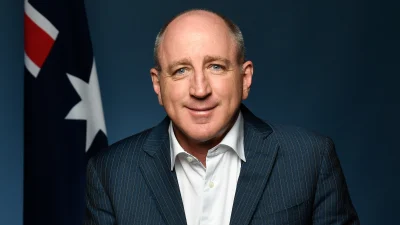Centro – limited impact on syndicates
Investors in Centro property syndicates will see little impact from the fund manager’s sub-prime problems in the short term, industry experts believe.
However, some syndicates do have problems due to cross-investing with suspended trusts.
Lonsec head of property research Kevin Prosser said most of the syndicate loans were secured against good quality assets and the levels of gearing were not excessive.
“There will be very little impact on the syndicates in the short term,” he said.
“The loans are for the period of the syndicate and will only need re-financing if the syndicate is rolled over.”
Centro bought most of the syndicates from property manager MCS, although it subsequently launched its own.
In total, there have been 38 MCS/Centro syndicates, although some of the earlier ones have been wound-up and a number have been rolled over.
There will be some syndicates coming to the end of their five-year initial investment period next year, although Prosser expects many will be rolled over due good income streams for investors.
“If Centro does have to sell some assets in a hurry, investors would be reluctant to give away good syndicate assets,” he said.
Adviser Edge head of property research Louis Christopher said the problems with Centro were bigger than Westpoint and Fincorp, as a lot of investors will be affected due to products being sold through financial planners.
“Financial planners have played a large part in selling the funds and the syndicates,” he said.
“But the Australian assets are good; it is the US retail that has the problems.”
Christopher also believes syndicates will have no problems in the short term, but the longer-term outlook is not so rosy.
“Centro is the biggest crisis to hit the property sector since 1989-90,” he said.
Centro has short-term debt of $7 billion, which will need to be renegotiated in the next 12 months, he said.
Christopher said the only syndicates that would have some problems are those that had suspended Centro funds co-investing.
These suspended funds, such as the Centro Retail Trust, won’t be able to pay distributions into the syndicate, thereby affecting earnings for investors.
“For some Centro syndicate investors it will be a wait for their money, but the syndicates have real assets,” he said.
Investors should not panic and sell out of other property trusts because of what has happened to Centro, Christopher said.
“Investors should do their research and look at levels of gearing in a trust, especially the amount of short-term debt,” he said.
Recommended for you
As the year draws to a close, a new report has explored the key trends and areas of focus for financial advisers over the last 12 months.
Assured Support explores five tips to help financial advisers embed compliance into the heart of their business, with 2025 set to see further regulatory change.
David Sipina has been sentenced to three years under an intensive correction order for his role in the unlicensed Courtenay House financial services.
As AFSLs endeavour to meet their breach reporting obligations, a legal expert has emphasised why robust documentation will prove fruitful, particularly in the face of potential regulatory investigations.














